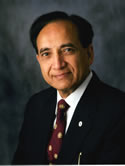| Abstract: |
Objective: To report the outcome of surgical salvage performed for early-stage squamous cell carcinoma of the glottic larynx that recurred or progressed after definitive radiotherapy. Design: Retrospective outcome analysis. Setting: Tertiary referral center specializing in head and neck cancer. Patients: Forty-three patients who underwent salvage surgery after definitive radiation therapy for early-stage (T1-T2) glottic cancer were identified from a preexisting database of 662 patients with squamous cell carcinoma of the larynx treated at Memorial Sloan-Kettering Cancer Center between the years 1984 and 1998. The T stage at initial presentation was T1 in 20 (18%) and T2 in 23 (32%). Twenty-one patients (49%) were amenable to salvage partial laryngectomy (SPL), but 22 (51%) required salvage total laryngectomy (STL). Details on patient characteristics, tumor characteristics, postoperative complications, and survival outcome were extracted from the database. Main Outcome Measures: Overall survival, disease-specific survival, neck recurrence-free survival, and distant recurrence-free survival. Results: No postoperative death occurred following salvage surgery. The overall incidence of complications was 21%, with no difference between the SPL and STL groups. Patients who required STL had poorer overall survival and disease-specific survival compared with patients who required SPL (overall survival, 50% vs 89%; P=.003; disease-specific survival, 51% vs 93%; P=.002). This difference in survival was associated with a poorer neck recurrence-free survival and distant recurrence-free survival in the STL group compared with the SPL group (neck recurrence-free survival, 80% vs 100%; P=.04; distant recurrence-free survival, 71% vs 93%; P=.06). Univariate analysis showed that age and clinical T stage at recurrence were predictors of overall survival, disease-specific survival, and distant recurrence-free survival. Conclusions: Careful selection of patients with earlystage glottic tumors that recur or progress after radiation allows patients to be successfully treated by partial laryngectomy with excellent survival outcome. However, despite an aggressive policy of performing partial laryngectomy when feasible, up to 50% of patients will require a total laryngectomy owing to progression of disease. These patients have poorer survival outcomes manifested by local, regional, and distant disease progression. ©2006 American Medical Association. All rights reserved. |











